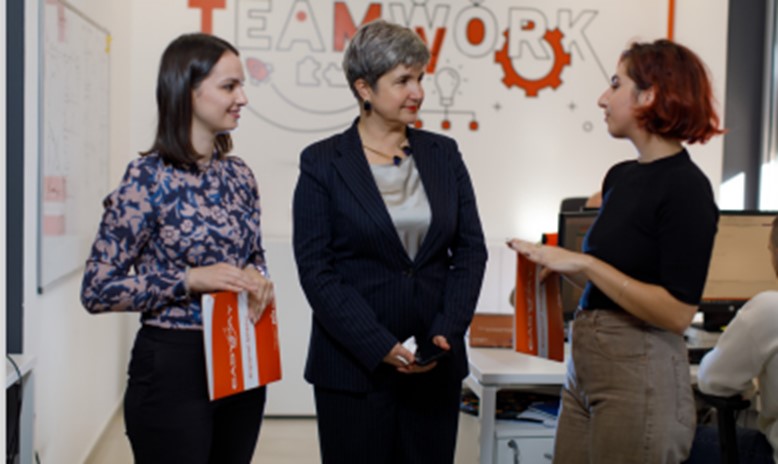Albania is a priority country of Switzerland’s transition cooperation with Eastern Europe. Over the past 30 years, the country has transitioned to a democracy and market economy. SECO’s ongoing cooperation projects in Albania focus on creating a resilient macroeconomic framework, supporting an innovation-friendly business environment, and promoting sound urban infrastructure services and energy management.
Albania is an upper middle-income country of 2.8 million inhabitants in the Western Balkan region. As an EU candidate country since 2014, Albania has initiated several reform processes expected to bring political, social and economic progress. These include a territorial and administrative reform, public accounting and tax administration improvements, a justice reform, a national business and investments development strategy, energy legislation enhancements, and the regionalisation of water service providers. Despite a strong commitment of national stakeholders, the operationalisation of these reforms has proven challenging.

Need for increased resilience to face future crisis
In recent years, three major crises have impacted Albania: (i) a large earthquake in November 2019, which caused 51 fatalities and affected 200,000 people, for combined damages and losses estimated around 985 million euros – or 7.5% of the 2018 GDP; (ii) the Covid-19 pandemic, with approximately 332,000 cases and 3,589 deaths; (iii) the energy crisis due to the combination of drought conditions and war, which substantially increased state expenditures for energy imports. Furthermore, Albania has the highest estimated disaster risk index in Europe: between 1980 and 2010, floods and storms affected more than 600,000 people, causing economic damages of at least USD 24 million, and climate change is exacerbating hydro-meteorological risks, particularly in coastal areas.
These crises have exposed weaknesses in governance and disaster preparedness,and highlighted the need for economic, institutional and infrastructure resilience strengthening to tackle future challenges:
- The Albanian economy is facing a high public debt (approx. 78% of GDP in 2022, according to World Bank estimates), substantial informality, and elevated unemployment rates, particularly among young people, which call for enhancements of the macroeconomic framework conditions and business environment.
- Remarkable progress in the coverage of drinking water services has been achieved in Albania – from less than 50% in 2000 to over 70% of the population having access to a safely managed water supply in 2020. However, less than half of the population (47%) use safely managed sanitation services and solid waste management remains unsatisfactory, with limited separation at source and recycling.
What are SECO’s objectives?
SECO and the Swiss Agency for Development and Cooperation (SDC) jointly define and implement the Swiss cooperation programme in Albania. Together, they are active in the areas of democratic governance, economic development and employment, urban infrastructure and climate change, as well as health. SECO mainly focuses on:
- Reliable macroeconomic framework
SECO programmes aim to create a reliable macroeconomic framework, and a stable financial and capital market. Institutional strengthening of financial sector regulators and supervisory authorities such as the Central Bank of Albania contribute to improved public finance management. In addition, programmes support enhanced resource mobilisation as well as the effective, transparent, and accountable management of public expenditures from local to national level. - Innovation-friendly business environment
SECO works to promote the competitiveness and productivity of private sector businesses, and to foster environmentally sustainable investments. In recent years, SECO supported the alignment of Albania’s corporate financial reporting system with international standards. SECO programmes also aim to strengthen linkages between the economy and education systems to improve inclusive labour force participation, productivity and wages.
- Sound urban infrastructure services and energy management
SECO leads and contributes to programmes that support the delivery of safe and affordable water, sanitation and solid waste management services through financially viable utilities. SECO also promotes efficient energy management and enhanced disaster risk reduction from local to national level through institutional strengthening, capacity building, and illustrative infrastructure financing measures.
From 2022 to 2025, a total of some CHF 105 million is foreseen for Swiss transition cooperation with Albania, including a SECO contribution of approximately CHF 40 million.
Last modification 19.04.2023


